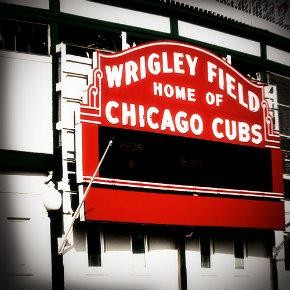Baseball believers
In 1989, as I was preparing to preach on the 75th anniversary of the dedication and opening of Fourth Presbyterian Church’s building on Michigan Avenue in Chicago, I thought it would be interesting to note what else was going in Chicago when the building opened in May 1914. I made an amazing discovery—Wrigley Field opened that same spring.
So I told the congregation that 75 years ago a wonderful new structure on the north side of Chicago opened its doors and that since that day thousands of people have walked through its portals, bringing with them their love, their anxieties, their grief and despair, but also their fierce and relentless hope. These people sat down together. They rose to sing together, joining their voices in praise and adoration. They ate together, passing food and drink to one another, and gave of their treasure to keep the enterprise going. Yes, I told them, 75 years ago Wrigley Field opened for the first time.
People laughed, of course, and then settled in to think about their church. The best part was that the senior management at the Chicago Tribune, which owned the Cubs at the time, heard about the sermon and invited me to throw out the first pitch for the game on July 4. (It was high and inside, but respectable.)






